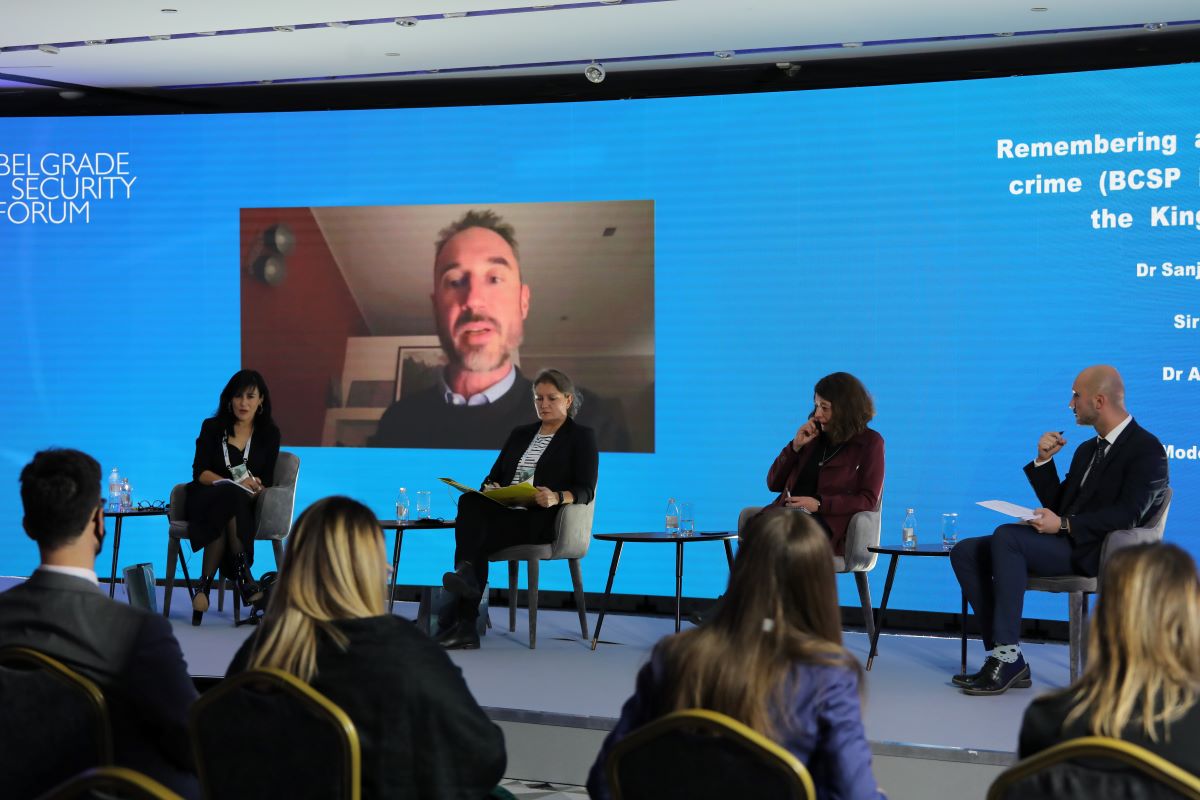How come that we remember wrongdoers more than those that suffered because of them?
Ms. Siria Gastelum Felix, Resilience Director at the Global Initiative Against Transnational Organized Crime talked about impacts of organized crime in Mexico which led to homicides, increasing of disappearances (90k+) and the rise of “narcoculture” from 2008 when “war on drugs” began. She said that the Resilience Fund was born to help people who are trying to find their loved ones who are missing. Ms. Gastelum Felix added that in the Balkans they are supporting 25 local initiatives, usually working with youth. She also said that similarities between Mexico and the Balkans are striking, since both are dangerous places for journalists to work. In most cases of threats and violence against journalists in Mexico, the perpetrators aren’t criminals, but state and local officials.
Mr. Alberto Pasquero, adjunct professor from the University of Milan, stated that in Italy practice is to confiscate criminals’ wealth and return it to the society. Assets can either go to state budget or be put at the disposal of civil societies’ social projects.
In comparison to Italy, reuse of confiscated assets in Western Balkans is much lower. While Albania has progressive law in this aspect, Serbia’s framework allows reuse of assets (they are given to local CSOs, charities, kindergarden etc), but the process is not fully transparent, said Pasquero.
“I see good prospects for application of this practice in Serbia, and Bosnia and Herzegovina is lagging behind on this issue”, stressed Pasquero
Ms. Sanja Ćopić from Victimology Society Serbia addressed the question why do we know about criminals and not about victims. Victims were invisible for a long time in the criminal field until 1970s and 1980s. It is hard to estimate the number of victims in Serbia, because we don’t have victimization service – for example in the EU about 15% of population are victims of serious crimes on annual bases. She added that there are institutional procedures for supporting victims of organized crime in Serbia, such as EU Directive of victims’ rights, which defines basic rights victims should have (for example, to have access to justice, to victims’ service etc.).
“Serbia can use the accession period as an opportunity to change the laws on victim protection. Currently, CSOs provide more assistance and support to the victims than the institutions in the Western Balkans”, said Sanja Ćopić.
Executive Director of Slavko Ćuruvija Foundation, Ms. Ivana Stevanović spoke about murders of journalists. ‘’Reporters Without Borders’’ reported 30 killings of journalists this year, and there is also huge increase of intimidation and harassment of journalists. She added that statistics show that from 10 journalist killings, 8 perpetrators go free. In the Western Balkans there is increase of unresolved cases (for instance, Slavko Ćuruvija case).
“Journalists are one of the main sources of resilience against organized crime”, said Ivana Stevanović.
She added that investigative journalists are the first ones who pinpoint organized crime groups and their links with politics – for instance, this year KRIK was accused for collaboration with mafia gangs after stories about Belivuk clan.








